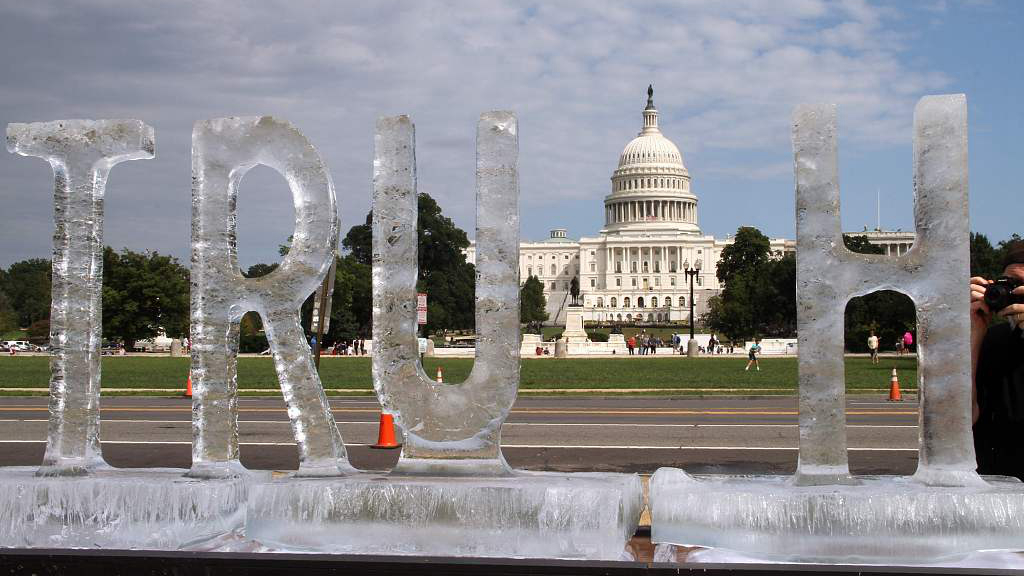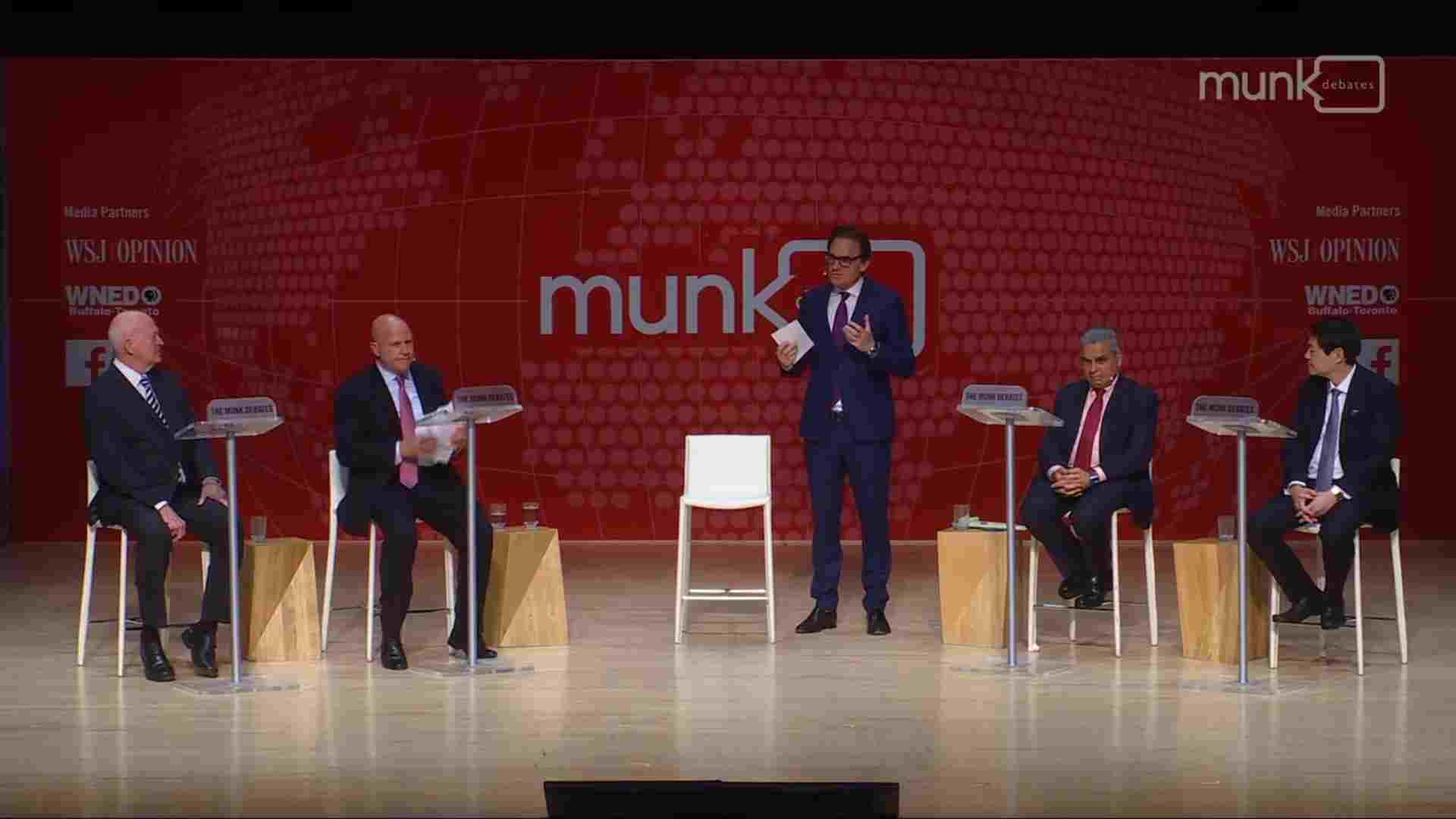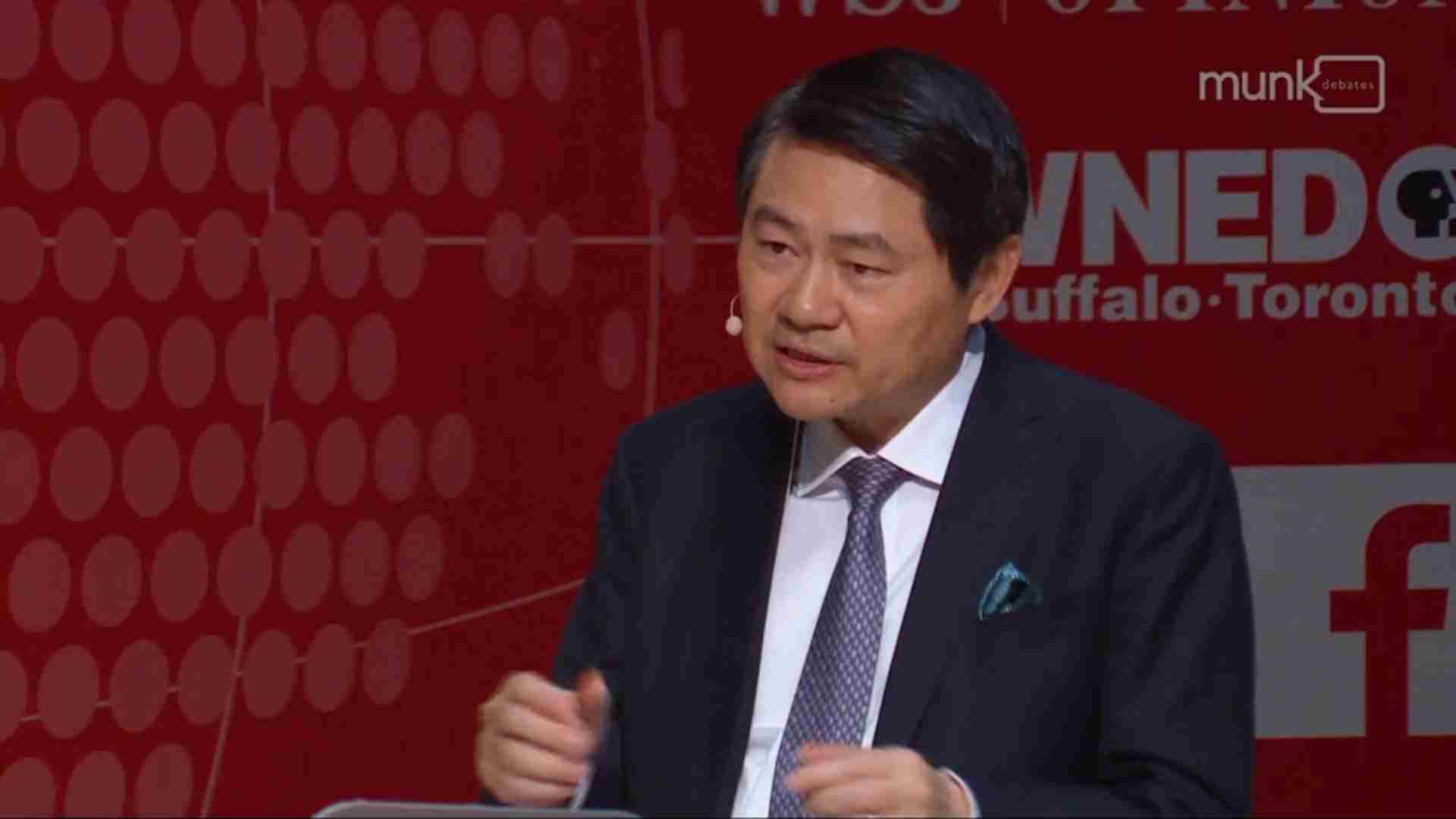
Analysis
17:52, 26-May-2019
Misunderstanding, lack of confidence behind 'China threat' illusion
Liu Jianxi

"Is China a threat to the liberal international order?" –that was the topic of debate between former U.S. national security adviser H.R. McMaster; Michael Pillsbury, one of the world's foremost China strategists, Kishore Mahbubani, former president of the UN Security Council, and Wang Huiyao, founder and president of the Center for China and Globalization debated, in Toronto earlier this month.
"China threat" is an old platitude that Western politicians and scholars have been spouting for decades, yet the result of Toronto's debate is worth noting. While 76 percent of the audience regarded China as a "threat" to the liberal international order before the debate, the post-discussion figure dropped to 74 percent.
The decline is vivid evidence that for most ordinary people in the West, the demonization of China is derived from their fundamental misunderstandings of the country.
Since its reform and opening-up in 1978, China has been actively engaged in international affairs and, in Mahbubani's words, is the "biggest beneficiary of the 1945 liberal International order." This means that any threat to the current order is detrimental to China's national interests.
Moreover, from the Paris climate accord to the Iran nuclear deal and UNESCO, China has been earnestly fulfilling its role as a major power and making relentless contributions to the current international order. The United States, on the contrary, has withdrawn from all the above international pacts and organizations under Donald Trump's presidency.

A still from the debate video uploaded on munkdebates.com.
A still from the debate video uploaded on munkdebates.com.
China, as Wang noted in the debate, has risen to be the second largest contributor to the UN's regular budget and will continue to be the second largest contributor to the UN peacekeeping budget for 2019-2021. These efforts should be met with applause, not suspicion.
China's Belt and Road Initiative (BRI) is bringing concrete benefits to the countries that have signed up to the project. Still, the BRI is misconstrued as China's "colonization" of less developed countries. This, to a large degree, is because the West has been used to interpreting China's model from the perspective of the Western governing system.
Martin Jacques, a senior fellow at Cambridge University, earlier told CGTN that there are two classic modes of Western expansion – military and political interventions. It is no surprise that Western countries regard China's BRI and other multi-win proposals as a political means to expand and even conquer other countries that the West used to control. It is not in China's genes to colonize disadvantaged states, and the West should be clear on that.

A still of Wang Huiyao, founder and president of the Center for China and Globalization, speaking during a debate on China uploaded on munkdebates.com.
A still of Wang Huiyao, founder and president of the Center for China and Globalization, speaking during a debate on China uploaded on munkdebates.com.
Apart from the fundamental misunderstandings of China's model, a lack of confidence is another significant reason for the West's negative protrayal of China. China's rise in the past decades may have posed a threat to U.S. hegemony in the world, not the liberal international order. Losing its dominant status in the current international order is what the West fears the most.
While China is now the world's second-largest economy, a majority of Americans see the U.S. economy as slowing down or in recession, according to Gallup polls. China's annual economic growth rate is roughly three times that of the United States and is slowly taking over the U.S. as one of the most sought-after destinations for both import and export.
Moreover, the U.S.-led alliance is seeing unprecedented challenges. Bearing a grudge against the capricious president's selfish "America First" policy, some of Washington's traditional allies are changing their previous hostile attitude towards China. This, combined with its economic slowdown, has made the U.S. more anxious about China's rise. In this context, the "China threat" theory has arisen and gained popularity.
Despite the shift in attitudes among the debate's audience, a large number of Westerners still regard China as a threat. Time is needed to dispel ordinary Westerners' misunderstandings and prove that while the U.S. is tearing up international pacts, China is making concrete contributions to the liberal international order.
(If you want to contribute and have specific expertise, please contact us at opinions@cgtn.com.)

SITEMAP
Copyright © 2018 CGTN. Beijing ICP prepared NO.16065310-3
Copyright © 2018 CGTN. Beijing ICP prepared NO.16065310-3